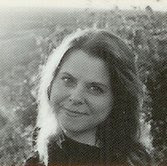This week's poem from :

Beautiful Trouble
by Amy Fleury
Crab Orchard Series in Poetry
Southern Illinois University Press
Commotions of the Flesh
after a line from Epicurus
To live in the world
is to live in the body,
the deepest heap of wants.
To hell with the mind
and is pursuit of its own
proper good. I am concerned here
with the commotions of the flesh.
Living in the fissure between desire
and the having, I have failed,
failed, failed to control myself.
From tooth to tongue, gullet to gut,
I have taken in the religion
of pork chop and gin, tasted
red meat and confection,
nectarine and absinthe.
And I have been pulled along
by the wild vein-song of sex,
the hunger that coils in the blood.
My children sing out to me
from their hammock between my hips;
they coax my fingers to touch.
Forgive me my weaknesses,
for bleeding and sweating and snoring,
for giving in to gravity’s tug.
Forgive my shivering, these tears,
this stomach rumble and bone-racket,
this agitation of the willful heart.
***
As the old saying goes “the spirit is willing but the flesh is weak” and the speaker in “Commotions of the Flesh” clearly knows about weakness in the face of temptation. What I like about the poem is that it takes on some heavy theological concerns: what to do with ourselves when we have God that gives us a messy disobedient body and then asks us to deny that body? She says she won’t address the mind thereby eliminating the need to address other struggles: those of faith, doubt, intellect, meaning and understanding. We have a hard enough time with the body alone.
Even though the speaker says “to hell with the mind” the whole poem is filled with motion, the verbs throughout: pursuit, pulled along, coils, sweating, rumble, agitation. These all show the speaker’s mind in conflict and in turmoil, not in peaceful repose. The speaker demonstrates the difficulties of being in the world, and of failing to do the difficult things that are asked of us.
We’re only different from the animal rule of instinct by our ability to reason, to deny ourselves these desires of the sensual world: our “deepest heap of wants.” And how often the mind fails to control the body’s deep instincts: we drink too much, eat too much, and let our drive for sex overwhelm our mind’s “pursuit of its own proper good.” How difficult is “control,” when it means attempting to overcome what we’re physically hardwired to do? The poem takes us right back there to the Garden, where we try to not eat of the forbidden fruit.
The poem doesn’t give us the stereotypical apple but provides us instead with “pork chop and gin” and “nectarine and absinthe.” (With that “sin” unmistakable in the middle.) After a stanza that ends with “religion” these shine in high relief as things denied: the unclean meat, the alcohol, the sweet flesh of the nectarine standing in as the fruit of knowledge. The next stanza even hints at the serpent that led to damnation, here as “the hunger that coils in the blood.” What can we do in the end but ask for forgiveness and live with our “willful heart,” our agitated, troubled selves with choices always before us, always the apple there within our reach.
***
Q & A with Poet Amy Fleury
Q: I often wonder where the seeds for poems come from. You quote Epicurus at the start; what were you reading when you began to form this poem? Or can you tell us a little about how this poem came to be?
Amy Fleury: I was actually reading Marcus Aurelius's Meditations in which Aurelius quotes Epicurus extensively. This was the match that lit the bit of kindling I'd already had, which was the first stanza of the poem: "To live in the world/is to live in the body,/ that deepest heap of wants." I'd been pushing that phrase around for awhile, but that just seemed too aphoristic. Sometimes you just have to wait around for something to knock loose the rest of the poem, and that is what happened with this one.
Q: The speaker of the poet says "to hell with the mind" but the whole question of the poem seems to be questioning if the mind is actually capable of controlling the body, do you think this is a question that poetry can address and provide a satisfactory answer? Should poetry even try?
Amy Fleury: Poetry should try everything, but having said that, I'd also say that I believe poems, and art in general, should be more about asking than answering, more about nuances than absolutes. I suppose this is the same as Keats's notion of negative capability--to live with mystery and uncertainty without the need to resolve them. The irony, of course, is that one can't ever wholly dismiss the mind, just as one can't dismiss the body.
Q: In a way, this poem acts much like one of John Donne's sonnets, at the end there's a bit of a turn and it is difficult to tell which way to read those last two stanzas and I like how there's a bit of ambiguity there for the reader. Do you read Donne? Do you see any of his influence in your work, here?
Amy Fleury: It's been many years since I've actively read Donne, though I spent a great deal of time with his poems and those of other Metaphysical poets when I was a student and admired them very much. Your question prompted me to flip open the Holy Sonnets and my eye was immediately drawn to the nineteenth which begins:
Oh, to vex me, contraries meet in one:
Inconstancy unnaturally hath begot
A constant habit; that when I would not
I change in vows, and in
devotion.
Struggling with contradiction seems to be a central occupation of life, for instance considering what we ought to do and what we want to do (which is not always contradictory).
Q: After reading this poem, it seems that the world is full of both wonder and temptation, is this the "Beautiful Trouble" of the book's title?
Amy Fleury: Interestingly, I didn't realize how obsessed I was with this until after I'd compiled the manuscript, which really speaks to the revelatory nature of the writing process. It comes up again and again in the poems, how we need sorrow to know joy, hunger to appreciate satiety, trouble to recognize peace, and so on.
***
Three More Poems to Note:
"Aurelia Waiting"
"A Prayer for Intercession"
"Sonnet for Dissonance"
***
Poet's Biography
 Amy Fleury is a native of Nemaha County in rural northeast Kansas, and graduated from Nemaha Valley High School. She earned her bachelor’s degree and her M.A. from Kansas State University, Manhattan, and her M.F.A. from McNeese State University.
Amy Fleury is a native of Nemaha County in rural northeast Kansas, and graduated from Nemaha Valley High School. She earned her bachelor’s degree and her M.A. from Kansas State University, Manhattan, and her M.F.A. from McNeese State University.Fleury’s work has appeared in American Life in Poetry, Prairie Schooner, Southern Poetry Review, North American Review, The Southeast Review, Laurel Review, 21st, and The Yalobusha Review. Southern Illinois University Press published her first collection of poetry, Beautiful Trouble, in 2004. It was the winner of the Crab Orchard Series in Poetry First Book Award, and was also included in a list of 100 notable books of 2004 published by The Kansas City Star. Her book was given the number one spot on the “cream of the crop” list, the top ten of the 100 originally listed.
Amy Fleury has been a recipient of the Nadya Aisenberg Fellowship from the MacDowell Colony and a Kansas Arts Commission fellowship in poetry. She lived in Topeka, Kansas, where she taught creative writing for ten years at Washburn University, where she was Professor. As of the Fall of 2008, she became the poet in the M.F.A. program at her alma mater, McNeese State University. Biography from poet's page at : Kansas Poets
For more about this poet see her pages at the Map of Kansas Literature .
***
Purchase Information:
Southern Illinois Press and elsewhere on the web.
***
Upcoming on Pages Rustle: work from John Gallaher's Map of the Folded World.
***



